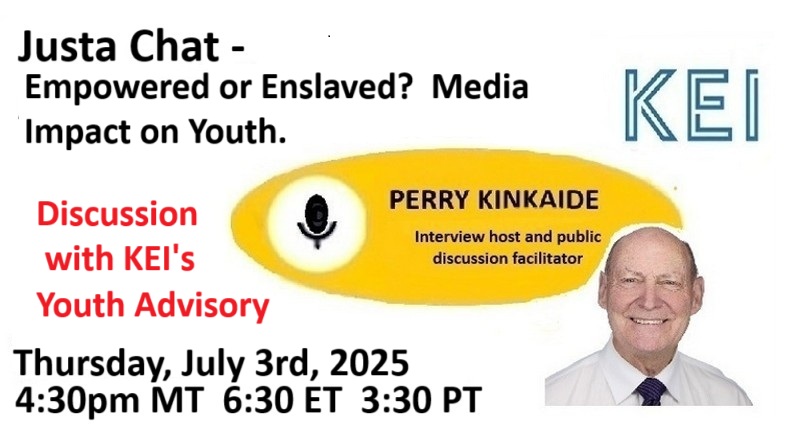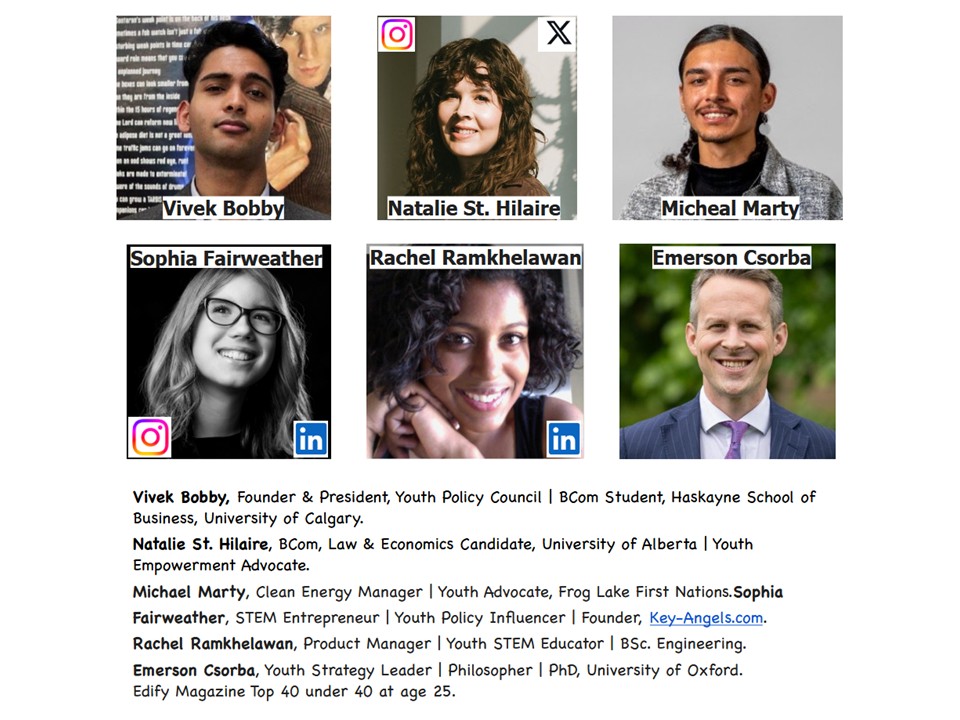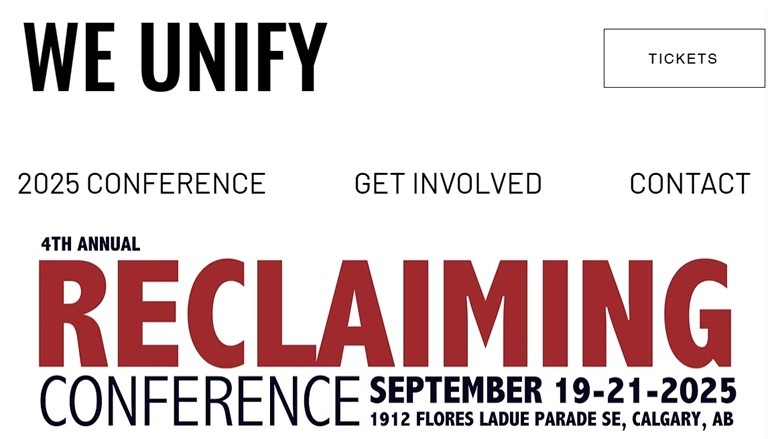|
Empowered or Enslaved? Media Impact on Youth |
DIRECTORY | ||
|
Contributions: Coddled, Crippled, Ready to Lead. HERE |
Action: Help sustain KEI's contributions |
Fact or Fiction?
Faith trumps technocracy |
|
|
Editor - Perry Kinkaide |
Ideas—like people—deserve space to breathe, evolve, and be tested. In today’s digital world, however, we are witnessing a profound shift. The promise of social media as a vehicle for empowerment is being overtaken by a quieter, more troubling reality: it is increasingly a tool of conditioning. For Canada’s youth, this change is especially consequential. Platforms that once offered voice, belonging, and agency are now shaping identity, measuring worth in likes, and rewarding outrage over reflection. While many young people have harnessed these tools to build communities and effect change, others are feeling overwhelmed, anxious, and disconnected—from themselves and from each other. The article that follows—Empowered or Enslaved?—is both a warning and a wake-up call. It asks us to consider who is really in control and what is being sacrificed in the pursuit of digital visibility. It challenges us to imagine a better balance between connection and control, between curated lives and authentic living. Listen, reflect, and engage—especially with the voices of youth who are navigating this brave new world in real time. - Editor |
||
|
Empowered or Enslaved? Media Impact on Youth. The Power and Pitfalls of Social Media on Young Minds Social media was once heralded as a revolutionary tool for global connection, self-expression, and democratized information. For many young people, it indeed has unlocked new opportunities and communities. But for others, it has become a subtle tool of manipulation—eroding self-worth, shaping narratives, and framing their sense of control. Young voices have found a megaphone through social platforms, amplifying causes like climate justice, mental health awareness, and identity belonging. These spaces portend unprecedented creativity, networking, and entrepreneurship. Research confirms that social media can foster connection, resilience, and emotional support, especially via moderated online forums where adolescents learn coping strategies through shared stories. Continued below.
No need to register. Just Zoom in https://us02web.zoom.us/j/84258596166?pw..
Youth Advisory Panelists
Continued from above. Let while some youth thrive, others are ensnared in algorithms designed to maximize attention—often at the cost of integrity and mental well‑being. The mere act of curating one’s life for likes can trigger the classic social comparison effect, with teens measuring their value against airbrushed realities. Studies reveal such comparisons are linked to declining self-esteem, anxiety, depression, and even suicidal ideation when usage exceeds two hours daily. Cyber-bullying remains a pernicious risk—affecting nearly one million children—and exacerbating “Facebook depression” through constant exposure to cruelty. Perhaps most alarmingly, much of today's "news" on these platforms is neither neutral nor factual. With youth among the least experienced critical thinkers, political content gets easily spun into narrative pipelines that reinforce echo chambers and confirm biases. Surveys show a strong correlation between high social media use and difficulty distinguishing fact from opinion—yet research also affirms that media literacy training dramatically improves skills in verifying content and resisting manipulation. Still, this isn’t the whole story. Across communities, young people—especially those from Black and Latine backgrounds—are developing digital resilience. A study notes that when youths build strong digital literacy, social media can become a platform for activism, self-expression, and cultural pride. Youth who learn to question their sources, vet information, and set healthy boundaries are proving that this technology can empower rather than ensnare. The challenge is education and intent. We must scaffold young minds with media literacy, engage parents and educators in ongoing dialogue, and foster reflective practice—encouraging users to pause, question, and cross-check before reacting. When schools implement frameworks like SIFT (“stop, investigate, find, trace”), teens like Kennedie Payne have begun calling out misinformation in real time. Ultimately, social media remains neither fully liberating nor corrupting. It holds a mirror to the user: amplifying curiosity, compassion, and insight when wielded deliberately—but also magnifying insecurities, misinformation, and echo chambers when left unchecked. As guardians of the next generation, our collective task is to ensure youth engage with this mirror wisely, critically, and deliberately.
Editor@KEInetwork.net
|







